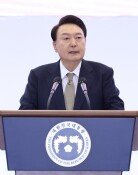Reduce gift tax more than inheritance tax boosts fertility
Reduce gift tax more than inheritance tax boosts fertility
Posted August. 13, 2024 08:05,
Updated August. 13, 2024 08:05
The government recently proposed revisions to the tax code, including reductions in inheritance tax, to account for inflation and streamline the tax system. As someone who previously wrote an article titled 'It's Time for Even the Middle Class to Worry About Inheritance Taxes,' I view this as a welcome development.
What was unexpected was the increase in the child deduction from 50 million won to 500 million won, rather than a blanket deduction. For those in their 80s and 90s, who are likely to inherit soon and have many children, this change is expected to be beneficial. However, for those in their 50s and 60s who need to prepare for future inheritance, it may not be as helpful because they have fewer children. The proposal still needs to be passed by the National Assembly, which may take some time.
The explanation for the increase in the child deduction is that it was intended to encourage childbirth in an era of low fertility. However, if the government were truly concerned about birth rates and stimulating the economy, reducing the gift tax to facilitate the transfer of wealth to the next generation during life rather than after death would have been more effective. This is because people in their 20s and 30s are the ones who will have children, and for them, the inheritance tax deduction may feel too distant.
Nowadays, many elderly people believe in the saying, 'Hold on to your wealth until you die.' It is also said that handing over property to your children in advance might encourage unfilial behavior. I used to think, 'These people will give their wealth to the country instead of their children.' However, if the inheritance tax is reduced while the gift tax remains the same, it could be a good tax-saving strategy for seniors with many children to postpone transferring their property until after their death.
Japan, which is about 15 to 20 years ahead of Korea in terms of population aging, adopted the opposite policy. This is because wealth lock-in became a social problem due to the inheritance system, where elderly people’s assets are passed on to other elderly individuals. For example, children in their 60s and 70s inherit from their parents in their 80s and 90s. As a result, the vast wealth of the elderly was locked up in savings, unable to be spent or reinvested.
In 2013, the Japanese government expanded the inter vivos gift system to address this issue. A special tax exemption was introduced for a limited time, allowing parents over the age of 60 to transfer their wealth to their children or grandchildren over the age of 18. This exemption covers up to 5-10 million yen for home purchases, 15 million yen for grandchildren's education, and 10 million yen for marriage and childcare. The aim was to transfer assets from the elderly to the younger generation to stimulate consumption and circulate money.
Aging wealth is no longer a foreign phenomenon. According to Statistics Korea, the net worth of Koreans aged 60 and older was expected to exceed 3,700 trillion won in 2022, accounting for nearly 40% of the country's total assets. Worse, most of this wealth is locked up in real estate. This provides a strong reason to consider a healthy wealth transfer.
When it comes to inheritance and gift taxes, there are always debates about double taxation on one hand and concerns that these taxes discourage wealth transfer, with accusations of ‘tax reduction benefits for the rich’ on the other. However, I believe that in a capitalist society, people should be encouraged to work hard, save, and build wealth, as this is how a country becomes stronger.







